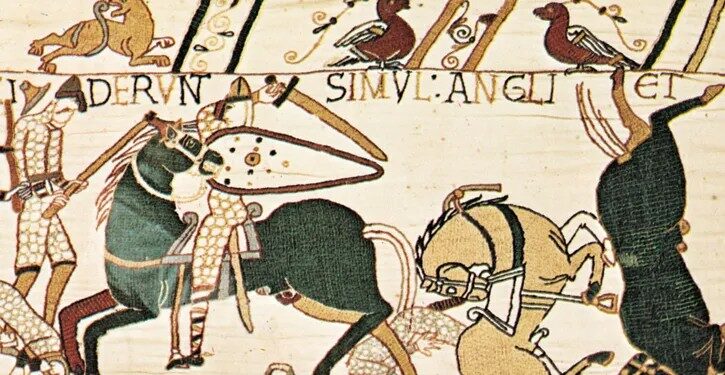The Battle of Hastings, fought on 14 October 1066, was one of the most decisive and transformative events in English history. The clash between William, Duke of Normandy, and King Harold II not only determined the fate of the English throne but reshaped the country’s language, culture, and governance for centuries to come.
Prelude to invasion
The conflict stemmed from a contested succession after the death of King Edward the Confessor in January 1066. Harold Godwinson, a powerful English noble, was crowned king, but William of Normandy claimed that Edward had previously promised him the throne. Determined to enforce his claim, William gathered a formidable army of Normans, Bretons, and Flemish troops and crossed the English Channel in late September 1066.
The opposing forces
Harold’s army, exhausted after defeating a Norwegian invasion led by Harald Hardrada at Stamford Bridge in northern England, hurried south to confront the Normans. His troops, mainly infantry with a core of seasoned housecarls, faced William’s combined force of cavalry, archers, and infantry—one of the most modern and disciplined armies in Europe at the time.
The day of battle
The fighting took place near the town of Hastings in Sussex. Harold’s men took up a strong defensive position on Senlac Hill, forming a solid shield wall. For much of the day, the English successfully repelled Norman assaults. However, a feigned retreat by William’s forces lured sections of the English line into breaking formation, creating openings that the Norman cavalry exploited. By sunset, Harold was killed—legend says by an arrow to the eye—and his army was crushed.
Consequences and legacy
William’s victory at Hastings opened the path for his coronation as King of England on Christmas Day 1066. The Norman Conquest transformed English society, introducing feudalism, altering land ownership, and blending Norman French with Anglo-Saxon, which profoundly shaped the English language. Castles, cathedrals, and administrative reforms followed, laying the foundation for the medieval English state.
Newshub Editorial in Europe – 14 October 2025



Recent Comments